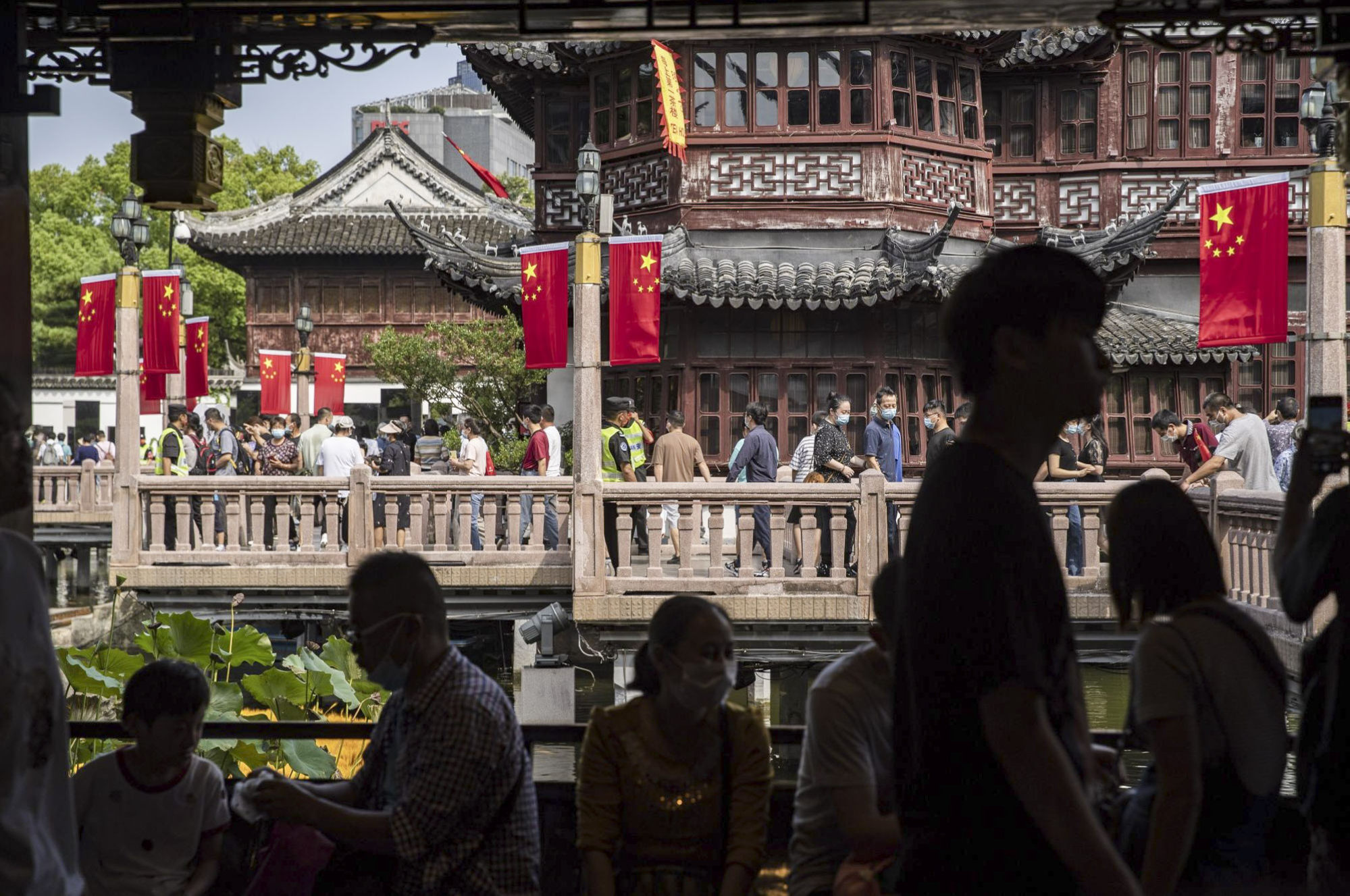
For China’s battered consumer stocks, National Day holiday offers hopes of a comeback
- Initial data on travel bookings has painted a rosy picture for consumer spending in this year’s October golden week holiday
- The eight-day break will offer clues on the progress of post-Covid recovery after a flurry of government supportive measures
Underperforming Chinese consumer stocks are likely to get a boost from the October “golden week”, which is expected to see a big boom in travel and leisure activities.
The mainland railway authority has forecast that local tourists would make 190 million trips during the eight-day national break that combines the Mid-Autumn Festival and National Day holiday this year, up 38 per cent from 2019, based on initial ticket booking numbers.
Data from Trip.com Group, the nation’s largest online travel agency, showed that outbound travel bookings surged by almost 20-fold from the same holiday a year earlier, while reservations tied to domestic travel rose by more than four times.
Tourism industry performance during the golden week is seen as a barometer of China’s consumption activities, which have been on decline this year as families tighten their purse strings due to shrinking disposal incomes.
Consumer stocks from beverage makers to household appliance manufacturers have remained depressed, with sub-gauges of the sector under the CSI 300 Index falling at least 5 per cent this year, while the country’s three biggest air carriers, including Air China, have sunk at least 19 per cent.
Hong Kong-traded shares of Trip.com have hovered near the same level since the start of the year.

How much people spend during this holiday, which ends on Friday, will offer clues on the progress of consumer spending recovery after the government released a flurry of supportive measures to prop up the economy.
“Growth sectors such as consumer, technology and healthcare are likely to see a recovery after a long period of underperformance.”
Apart from the continuing release of pent-up demand for travel after three years of draconian Covid-19 restrictions, the ongoing Asian Games in Hangzhou, capital of eastern Zhejiang province, and robust demand for gold jewellery have given an additional boost to holiday consumption.
Flight bookings to Hangzhou in September increased 20 per cent from the same period in 2019, while hotel reservations in the city surged by more than fourfold, according to Huajin Securities, citing data by online travel agency Qunar.com.
Why a weak yuan is spurring a retail gold rush in China
Sales of gold jewellery will hold up through the rest of the year because of rising bullion prices and demand from weddings, according to Caitong Securities.
Sales of gold jewellery in August grew by 7.2 per cent from a year ago to 28.3 billion yuan (US$3.9 billion), outpacing the 4.6 per cent rise in retail sales, according to official data.
Gold futures rose to a record high on the Shanghai Futures Exchange in September, driving more purchases by investors seeking to preserve their wealth amid a weakening yuan.
Traders will look to golden-week tourism data for insights into the resilience of retail sales, which rose by an unexpected 4.6 per cent in August. Nomura Holdings warned that the momentum, driven by one-off demand for summer travel, might be temporary.
1 million mainland Chinese tourists expected in Hong Kong for ‘golden week’
The golden week is the second major public holiday in China since the nation lifted its stringent pandemic restrictions. During the five-day Labour Day break in May, China raked in 148 billion yuan in tourism revenues, returning to roughly the level seen in the same period in 2019, according to government data.
Per capita spending dropped by 10 per cent during that holiday from the same period in 2019 to 540.35 yuan, signalling a downgrade in consumption amid a pessimistic outlook in the job market.
To resurrect consumer spending, Beijing has cut the mortgage rates for first-home purchases, unveiled a policy package to bolster the capital market, and introduced more special-item deductions for income taxes.
“The October holiday may become the hottest golden-week holiday in five years,” said Liu Yang, an analyst at Caitong Securities. “Retail sales will probably pick up further in the fourth quarter after all these measures are expected to repair the household balance sheets.”

